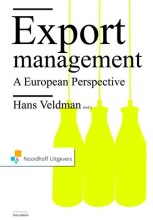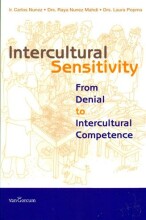Summary: International Business | 9789001805036 | Radha Jethu Ramsoedh, et al
- This + 400k other summaries
- A unique study and practice tool
- Never study anything twice again
- Get the grades you hope for
- 100% sure, 100% understanding
Read the summary and the most important questions on International business | 9789001805036 | Radha Jethu-Ramsoedh, Maud Hendrickx.
-
1 Introduction to international business
This is a preview. There are 15 more flashcards available for chapter 1
Show more cards here -
What is the core of sustainable international business?
The stakeholder -
What is a stakeholder?
A group or individual who influences or is influenced by an organisation or company. Examples:
- Shareholders
- Social groups
- Clients
- Communities
- Employees
- Environmental groups
- Suppliers
- Governments
-
On which three pillars is sustainable international business based?
- People
- Planet
- Profit
-
For what reasons do companies import products or services?
- Production in other countries is cheaper
- The product/service is not yet available on the domestic market
-
For what reasons do companies export products or services?
- Too small domestic market
- New markets
- Continuity of the enterprise
- Price is competitive
- Overcapacity
-
What are the differences between proactive and reactive motives for doing business abroad?
Proactive motives are derived from the policy that a company establishes to do business internationally, while reactive motives derive from a threat in the home market or the nature of the product. -
Name 7 proactive motives for doing business abroad
- Profit and growth goals
- Managerial urge
- Distinctiveness of the product
- Anticipating foreign market opportunities
- Economies of scale
- Integration of the supply chain
- Tax benefits
-
Name 7 reactive motives for doing business abroad
- Competitive pressure
- Small and/or saturated home market
- Utilisation of overproduction/ excess capacity
- Reduced dependence on customers/suppliers
- Stabilisation of seasonal factors
- Proximity of customers/suppliers
- Perishable products
-
2 Political & economic environment
This is a preview. There are 18 more flashcards available for chapter 2
Show more cards here -
What is a trade policy?
The sum of all the measures a government can take to control foreign trade. -
By what is the trade policy of EU-members primarily determined?
The Common Trade Policy of the European Union
- Higher grades + faster learning
- Never study anything twice
- 100% sure, 100% understanding

































